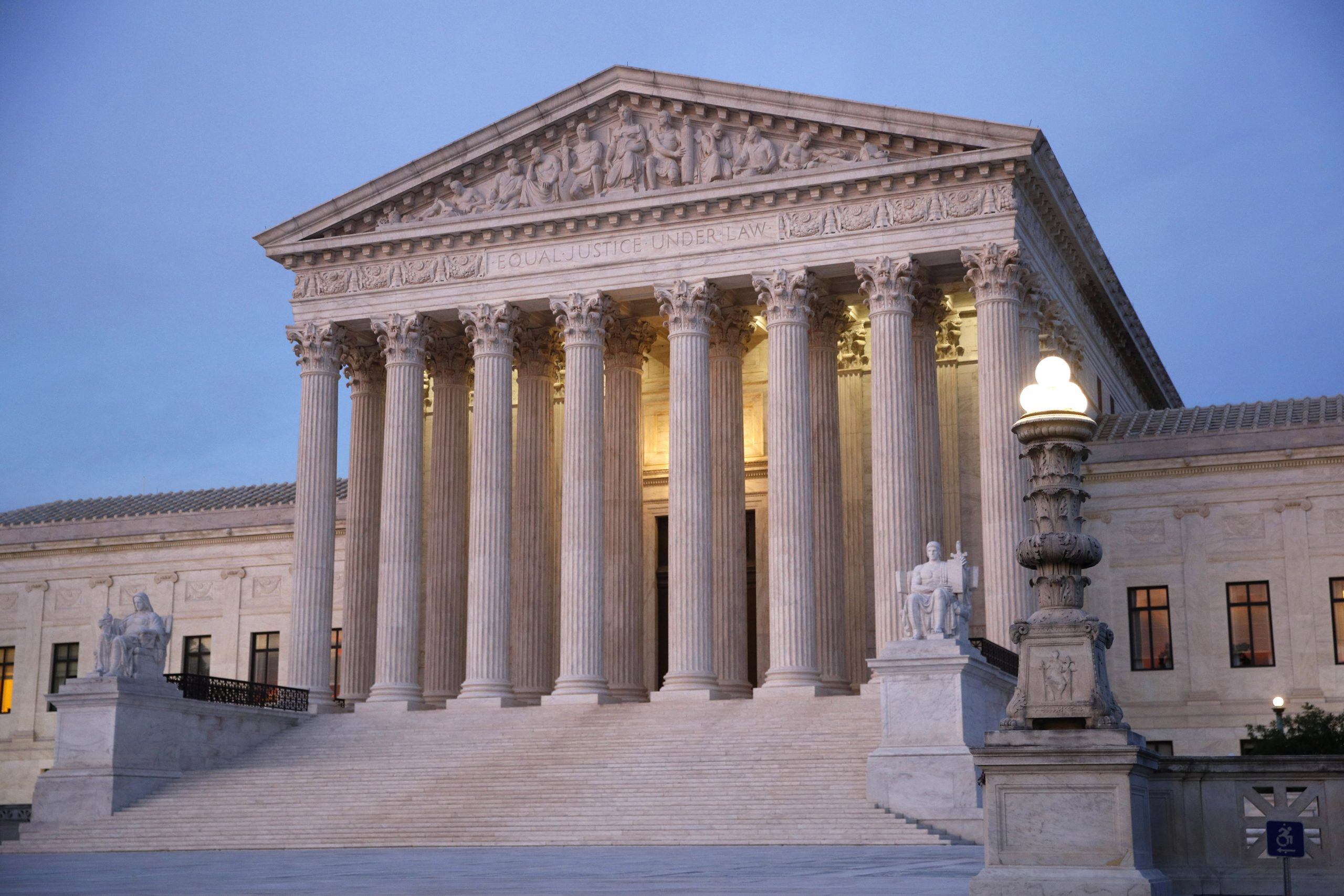What To Know Today
Supreme Court agrees to hear pivotal case about gun carrying in public. In the National Rifle Association-backed New York State Rifle & Pistol Association v. Corlett, two men denied state gun permits are challenging New York’s public carry laws. New York is one of eight “may-issue” states that give officials discretion in denying concealed carry permits even if applicants have passed a background check or completed required training. In seven of the may-issue states, including New York, an applicant for a permit must document a “proper cause” for their need for self-protection.
- Implications for carrying guns publicly: The court will consider the question of whether the New York law violates the Second Amendment. Its decision may apply narrowly to New York’s law, or extend more broadly to states with similar restrictions.
- Heller, but for the public sphere? Gun rights advocates are hoping for a broad decision like in 2008’s D.C. v. Heller, when the court’s majority held that the Second Amendment guaranteed an individual’s right to bear arms in the home for self-defense. (The ruling overturned the district’s handgun ban.) The court has since declined to take a position on how or whether that right should be extended to the public sphere; lower courts have generally upheld restrictions on guns in public.
- A potential new legal standard on guns. “The Supreme Court may also provide much needed guidance for lower courts considering how to decide Second Amendment cases — should courts look only to text, history and tradition in measuring whether a law is constitutional or do empirical facts about the law’s impact on public safety also matter?” said Jacob Charles, executive director of the Duke Center for Firearms Law. Experts have told us a “history and tradition” standard is one many gun restrictions may not survive. “The significance” of the case, Charles noted, “cannot be overstated.”
- Gun reform groups express alarm: “The outlook does not look good for gun safety laws at the Supreme Court,” said the gun reform group Giffords in a statement decrying the decision and echoing the response from other organizations. Gun rights groups, on the other hand, were buoyed, and many expressed optimism that New York’s law would be overturned.
SCOTUS declined to wade into a separate case in which it could have expanded gun rights. In Mai v. United States, the court rejected a suit challenging gun bans for people who have been involuntarily committed to mental health facilities within the previous 20 years.
Justice Department launches an investigation of the Louisville Police. The civil investigation comes 13 months after the fatal police shooting of Breonna Taylor and seeks to determine if the Kentucky city’s police department has a history of unreasonable force and unlawful searches and seizures, as well as how the department’s tactics affect people of color. It’s the second so-called pattern and practice investigation Attorney General Merrick Garland announced in less than a week, following a similar probe in Minneapolis. Such investigations all but ended during the Trump presidency, and federal oversight over troubled police agencies has been a major Biden administration priority. ICYMI: The Trace’s Jennifer Mascia wrote more about pattern and practice investigations, and the court-supervised reforms they can lead to, in our weekly newsletter.
Federal funds earmarked for reforming police emergency response. The Associated Press reports that an estimated $1 billion is available for states to set up mobile crisis teams in lieu of police to respond to calls of people in crisis. The AP notes that the funding, which would be disbursed through Medicaid to states, was inserted by Oregon Democratic Sen. Ron Wyden. “Too often law enforcement is asked to respond to situations that they are not trained to handle,” Wyden tells the AP. The $1 billion is set to come online for states next April for an initial period of five years.
Kansas City, Missouri, reporter dies after being hit by stray bullet. Aviva Okeson-Haberman, 24, was a reporter with KCUR, the local NPR station, and was killed when a bullet came through the window of her apartment. “She was an especially beloved friend and colleague just beginning what promised to be a brilliant career. We, at KCUR, join her family and friends in mourning her passing,” reads KCUR’s remembrance of her young life and career.
Data Point
850 — the number of crime guns in Chicago that allegedly came from one gun dealer in nearby Gary, Indiana, between 2009 and 2016, the most of any out-of-state supplier. Yesterday, the city announced it was suing Westforth Sports, arguing that it had ignored signs of gun trafficking in its sales. [City of Chicago complaint]
[Everytown Law, the legal branch of Everytown for Gun Safety, joined the suit. Everytown’s nonpolitical arm provides funding to The Trace. Here is a list of The Trace’s major donors and its policy on editorial independence.]

